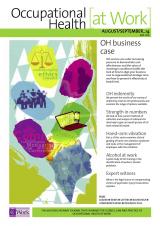August/September 2014 (vol. 11/2)
ContentsFeaturesNewsLegal
NewsResearch DigestResearch PlusCPD
Research Plus
Mitigating the ill-health effects of nightwork
Nightshift work can have harmful health effects, including sleep disruption, breast cancer, cardiovascular disease and diabetes, as well as impinging on work–life balance. This systematic review of measures taken to improve long-term health of shiftworkers includes 44 papers, with a combined total of 2,354 workers. A combination of timed exposure to bright light and wearing bright- or blue-light blocking goggles during the commute home helps adaptation to shiftwork in terms of sleep duration and quality. The evidence generally supports interventions specifically aimed at nightworkers to promote healthy diet, physical activity and lifestyle behaviours. Fast-forward rotating shifts may be beneficial in terms of sleep quality but the evidence is contradictory – three studies found positive changes after changing from backward to forward rotating shifts, but this was not observed in three others. There is inconsistent evidence on the benefits of changes in shift length or start time, and mixed results from using melatonin, hypnotics and stimulants. Methodological quality is variable and frequently poor – the report notes the difficulties of studying real-life workplace settings – and follow-up times generally short (the longest for a shiftwork study was eight months). Heterogeneity between studies prevented a meta-analysis.
Health-related interventions among night shift workers: a critical review of the literature. Scandinavian Journal of Work, Environment and Health 2014; online first: doi: 10.5271/sjweh.3445.
Occupational Health at Work August/September 2014 (vol. 11/2) pp43



